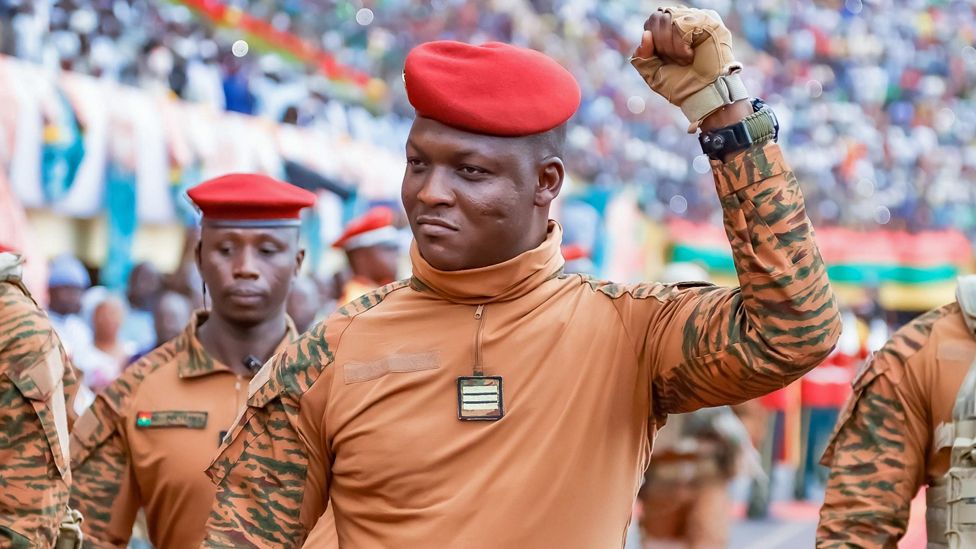Capt Ibrahim Traoré: Why Burkina Faso’s Junta Leader Has Captured Hearts and Minds Around the World
At just 37 years old, Capt Ibrahim Traoré has emerged as a pivotal figure in Burkina Faso’s political landscape since his rise to power via a coup in 2022. With a fervent anti-colonial stance, Traoré positions himself as a pan-African leader on a mission to liberate his country from Western influence, drawing comparisons to renowned figures like Thomas Sankara, a past revolutionary leader known as “Africa’s Che Guevara.”
Beverly Ochieng, a senior researcher at Control Risks, recently remarked on Traoré’s widespread appeal, noting that his rhetoric resonates with those across the African continent who are increasingly critical of Western relationships that perpetuate poverty despite the wealth of resources available. “His messages reflect the current climate of questioning why such disparity exists in a rich continent,” Ochieng expressed.
A Shift in Alliances
Since taking control, Traoré’s administration has pivoted away from its historical ties with France, forming a robust alliance with Russia. This transition is underscored by the deployment of Russian paramilitary forces and leftist economic policies. A significant initiative includes the establishment of a state-owned mining company, allowing the government to obtain a 15% stake in local operations and mandate foreign firms to share expertise with local citizens. This policy has affected foreign investments, as seen with the controversy surrounding Sarama Resources, an Australian firm pursuing arbitration after losing an exploration license.
Revolutionizing the Gold Sector
Traoré has initiated what he describes as a “revolution” to ensure that Burkina Faso benefits directly from its mineral wealth. This includes the construction of a gold refinery and the creation of national gold reserves—a first in the country’s history. Such reforms have enhanced his popularity, prompting observers like Enoch Randy Aikins to label him potentially “Africa’s most popular president.”
| Key Changes Under Traoré | Impact |
|---|---|
| Shift of alliances from France to Russia | Establishment of military and economic collaborations with Russia |
| Creation of state-owned mining companies | Ensured Burkinabé stake in foreign operations and knowledge transfer |
| Nationalization of foreign-owned mines | Strengthened national control over economic resources |
Controversies and Challenges
Despite his surging popularity, Traoré’s rule has not come without challenges. His administration has faced critical scrutiny for its inability to address a decade-long Islamist insurgency that has exacerbated ethnic tensions in the region. Additionally, he has cracked down on dissent and opposition, raising concerns among advocates for human rights and democracy.
A noted aspect of Traoré’s rise is his effective use of social media, where even AI-generated content pays homage to his revolutionary image. His public speeches, particularly at significant events like the 2023 Russia-Africa summit, have been instrumental in elevating his profile, calling on leaders to resist Western imperialism.
Shifting Political Dynamics
His governance reflects a broader trend in Africa where traditional democratic frameworks are increasingly questioned. A survey conducted by Afrobarometer highlighted a growing disillusionment with democracy among young populations who seek alternatives that promise jobs, education, and stability—crucial elements that Traoré has vowed to address.
As Traoré navigates the complexities of leadership amid fluctuating international relations and immense domestic expectations, his journey remains closely watched both within and outside Africa. His ambitious aims to foster a sense of national pride and autonomy present a challenging but potentially transformative path for Burkina Faso and the continent at large.


